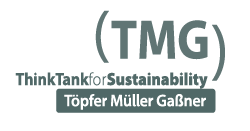Bridging the disconnect between policy intentions and the realities of urban food insecurity
Nairobi policy workshop to bring together key County decision makers with research and civil society actors to agree on how to implement concrete pathways to tackle persistent hunger and related crises of urban poor

One of the policy priorities of the current Nairobi County Government is to boost food and nutrition security by establishing central kitchens in each of the 17 sub counties. These kitchens are a centrepiece of new plans to boost school feeding programmes and boost enrolment, retention, transition and performance of children in education. In addition, to reach its aspiration for a city of order, dignity, hope and opportunity, Nairobi County has created a Biashara Fund kitty and a new department, Business and Hustler Opportunities, specifically geared towards the informal sector.
Despite these good intentions, the bulk of urban residents are yet to benefit from such public initiatives. In the sprawling Mukuru informal settlement, for example, there are only six public schools compared to 147 informal schools established by NGOs, community organizations and other wellwishers. Yet it is the households served by these informal schools who are most in need of social safety nets, such as predictable school-based meals.
The need to bridge these gaps is what led to a unique research collaboration between TMG Research gGmbH – a German-based not-for-profit think tank on sustainability, and two Nairobi-based partners: Muungano wa Wanavijiji/Akiba Mashinani Trust, which has spearheaded the Mukuru Special Planning Area process; and Miramar International Foundation, which promotes smart farming systems and agribusiness support services to improve food security and livelihoods. Starting at the height of the Covid-19 pandemic, the partners investigated the impact of the crisis on vulnerable households and jointly explored various community-based solutions to address immediate hunger and build resilience to external shocks. The research programme is funded by the German Federal Ministry for Economic Cooperation and Development (BMZ).
A key goal of the action research programme was to go beyond identifying food security challenges and to explore concrete solutions and innovations to address the underlying structural reasons for food and nutrition insecurity. Among such structural causes identified during the study were including historical marginalization, rising food prices linked to the interlinked global crises (Covid-19, the Russian invasion of Ukraine and its disruption of agrifood supply chains, and worsening climate change with its impact on food production). Building on these insights, the partners facilitated community-level dialogues and embarked on pilot projects to strengthen access to affordable food for the most marginalized groups. With support from Miramar, the programme has piloted an innovative food production hub at Mukuru Kwa Ruben based on adapted hydroponic agriculture installation. By supplying produce to surrounding informal schools, food vendors associations, and emerging community kitchens (another innovation introduced during the scoping phase) the partners aim to offer a scalable proof of concept that can inform the further development of Nairobi County’s food systems strategy and contribute to food system transformation at county and higher levels.
TMG Urban Food Futures partner organizations meet with Nairobi County stakeholders ahead of the policy event. Photo credit: Reuben Mutua, Muungano AMT
On 29 and 30 March, the partners will present the results of the scoping phase of the study, and outline the next steps for scaling up “pathways to food system transformation” in Cape Town and Nairobi. Taking place at Sarova Panafric Hotel, Nairobi, the policy event will provide a consultative platform between research and civil society organizations and key stakeholders from the Nairobi County government, including the Directorate of School Feeding, trade, Ministry of Agriculture, Ministry of Cooperatives, Micro, Small and Medium Enterprises (Hustler Fund), urban planning, and social services.
The policy event will also explore further areas of common interest between the diverse organisations represented and the research programme; review Nairobi’s food system actors and mandate mapping for a coordinated interaction with all relevant stakeholders; explore modalities of forming a steering working group for assessing and evaluating the implementation process of the research programme in Nairobi; and provide a platform for peer exchange with state actors from Cape Town.
